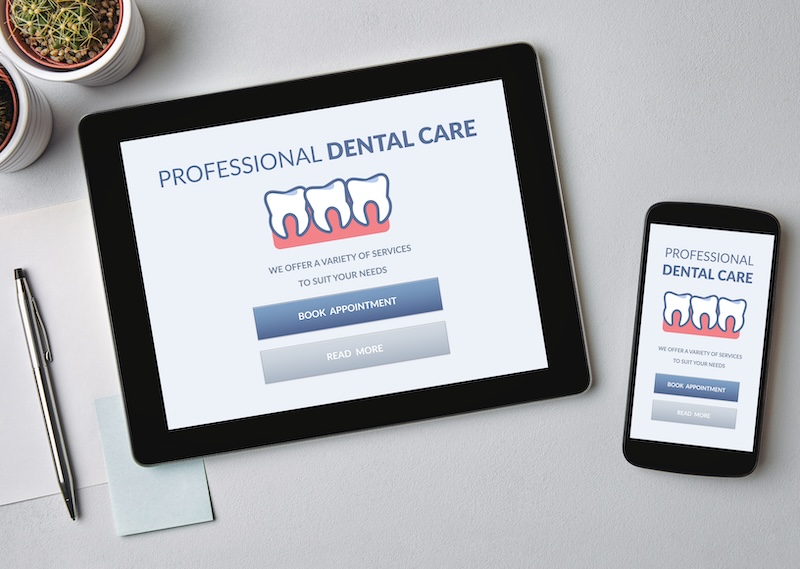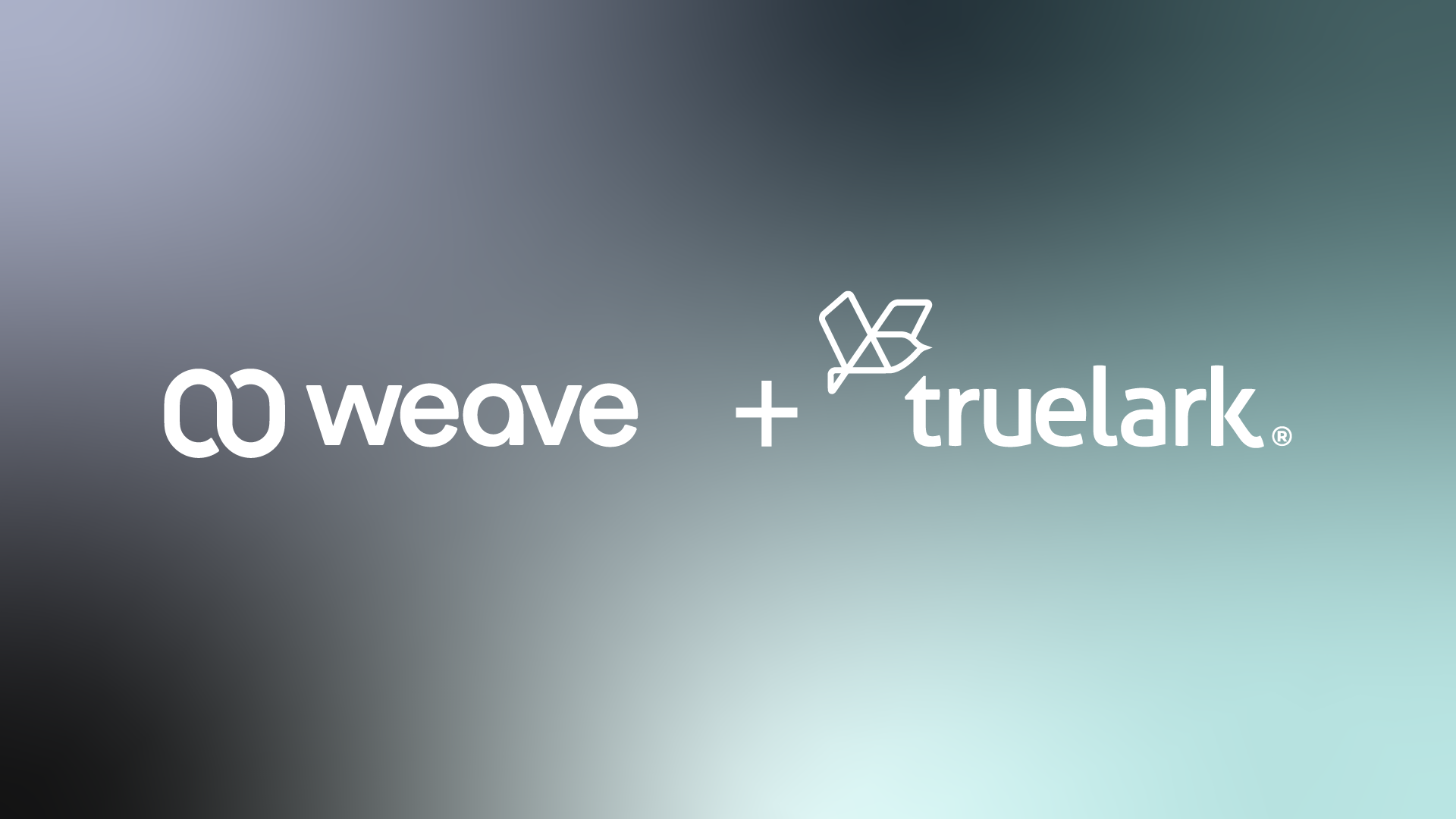DSOs are charging ahead, but growth brings real challenges. Patient expectations are higher than ever, admin tasks keep piling up, and the pressure to stay profitable never stops. Because of this, many are looking to Artificial Intelligence to create a smarter, more scalable practice. From optimizing patient scheduling to streamlining insurance claims, AI enables DSOs to focus on delivering better care while reducing costs. This article is for DSO and multi-location practice executives who are in the process of formulating an AI strategy. We’ll discuss the tangible ROI of DSO AI, where DSOs see the greatest financial and operational benefits, and what you need to consider before investing.
What are the drivers of AI adoption among DSOs?
Group practices are turning to AI to enhance patient care and ensure consistent clinical outcomes across multiple locations. AI-powered diagnostic tools assist in standardizing treatment planning, improving accuracy, and reducing variability in care. By leveraging machine learning and computer vision, AI enhances early disease detection, supports clinical decision-making, and enables more precise treatment recommendations, ultimately leading to better patient outcomes.
Beyond its clinical impact, Dental Support Organization AI also addresses critical business challenges, helping group practices scale efficiently without increasing administrative burdens. AI-driven automation minimizes reliance on front-desk staff and call centers by streamlining appointment scheduling, insurance verification, and patient communications. With AI-powered engagement tools ensuring 24/7 support, practices can improve patient satisfaction, boost retention, and optimize revenue management through enhanced billing accuracy and claims processing. By integrating AI across both clinical and operational functions, DSOs can drive profitability while elevating the standard of care.
How DSOs are using AI to improve their ROI
AI isn’t just about cutting costs—it’s about making every dollar work smarter. Here’s how AI is driving financial returns for DSOs:
AI for clinical decision support and diagnostics
DSOs use AI-powered imaging and diagnostic tools to improve treatment accuracy and efficiency. Key benefits of AI for clinical diagnostics include:
- Consistent treatment protocols – DSO AI ensures every patient receives the same high-quality care, regardless of location.
- Enhanced diagnostic precision – AI-assisted imaging detects early signs of oral health issues, leading to better treatment outcomes.
- ROI impact – More accurate diagnoses lead to fewer mistakes and increased treatment acceptance rates.
According to industry data, AI-powered imaging solutions can increase early detection rates by 31%, leading to an additional 8 restorations per month per provider. With an average case acceptance rate of 59%, this translates to an extra $2,600 in revenue per month—or nearly $30,000 per year—per provider. This results in a 499% ROI, with AI paying for itself in less than 2.5 months. Dentrix
AI for revenue cycle management (RCM)
AI makes the financial side of DSOs more predictable and profitable. Key benefits include:
- Faster claims processing – AI automates claims submission, reducing errors and minimizing delays.
- Fraud and error detection – AI for revenue cycle management flags inconsistencies in insurance claims before they become financial setbacks.
- ROI impact – Reduced claim rejections and improved cash flow mean healthier financial performance.
Signature Dental Partners, a 98-location DSO, saw a substantial boost in both financial performance and operational efficiency after integrating DSO AI into their RCM processes. Cara Perry, VP of RCM at Signature Dental, shared:
“We’ve gone up in collections, our turnaround days are quicker, and we only had two practices under 90% for the year. My staff has gone from being able to work five practices to being able to work 10 or 12.” Thoughtful.ai
When the Dental Group of Chicago DSO adopted AI-driven automated payment posting, they saw immediate ROI. Within the first 30 days of implementation, the system successfully processed at least 73.53% of all transactions, with peak days reaching 87% automation, eliminating the need for manual input. By cutting manual payment posting to just a fraction of its previous workload, the revenue cycle management team tripled its overall productivity, significantly improving efficiency and cash flow. Zentist
AI for patient communication and scheduling
Modern patients expect instant, seamless communication. AI-driven tools ensure DSOs stay responsive 24/7. Key benefits include:
- Fewer missed appointments – AI sends automated reminders to reduce no-shows.
- Faster scheduling and follow-ups – AI chatbots assist patients in real-time, handling scheduling, rescheduling, and FAQs.
- ROI impact – Higher patient retention and optimized schedules lead to increased revenue per provider.
The impact of Dental Support Organization AI for patient communication is clear in real-world results. SGA Dental Partners, a 120-location DSO, has leveraged an AI Control Center to streamline scheduling and optimize patient engagement across its locations. On average, each generates $13.9K in additional revenue per month, with 161 patient conversations automated. More importantly, 68% of booking requests convert into actual appointments, driving 21 total bookings per month per location, including 12 new patient bookings. By ensuring that patient inquiries are addressed instantly and efficiently, SGA Dental Partners has not only reduced front desk burden but also unlocked significant revenue potential through seamless, AI-driven scheduling. TrueLark
AI for operational efficiency
AI-powered operational intelligence goes beyond automation—it optimizes decision-making across all facets of a DSO’s business. By integrating AI with practice management systems (PMS), DSOs can gain real-time insights into patient demand, treatment needs, and resource allocation. For example, AI can analyze historical patient data to identify recall opportunities, track clinical performance, and predict upcoming treatment volumes, helping DSOs allocate staff more effectively and streamline scheduling.
The dental industry is facing widespread workforce shortages, driven by declining enrollment in dental education, post-pandemic staffing challenges, and professional burnout. AI-powered tools are helping optimize staffing needs by automating routine administrative tasks, allowing DSOs to operate efficiently with fewer front office staff. Dentistry.co.uk
Additionally, AI-driven procurement insights allow DSOs to forecast supply needs based on expected procedures, preventing overstocking or shortages. Key benefits include:
- Staffing optimization – AI predicts patient volume trends, ensuring efficient workforce management.
- Inventory and supply chain automation – AI optimizes supply orders, preventing shortages and reducing excess inventory costs.
- ROI impact – Lower labor costs and improved resource utilization create significant long-term savings of ai for operational efficiency
“With AI support, evaluating return on investment for major equipment is no longer rough guesswork. Being aware that you have a certain amount of opportunity and knowing that you can probably close on 60% of that opportunity allows practices to understand––with real dollar value precision––just how quickly they will be able to break even and start seeing returns on high-cost dental tools.” DSOPro
AI for marketing and patient acquisition
Let’s talk about how AI benefits Dental Support Organizations in building their patient base. With 70-80% overhead costs, dental practices can’t afford to waste marketing dollars on ineffective strategies. Traditional methods often cast too wide a net, leading to wasted ad spend and lost opportunities. AI changes that. By analyzing patient demographics, engagement patterns, and past behaviors, these systems help DSOs deliver targeted campaigns that reach the right people at the right time.
A Chicago area dentist that adopted a dental marketing AI platform saw new patient inquiries jump by 60% and retention rates climb 40% in just six months. Jeff Beale on LinkedIn
AI automates dental appointment reminders, follow-ups, and outreach, keeping patients engaged without adding extra work for staff. It also fine-tunes ad spend, ensuring marketing dollars go where they’ll have the greatest impact. The result? More booked appointments, stronger patient relationships, and a marketing strategy that works as hard as the practice itself.
- Data-driven ad targeting – AI helps DSOs reach high-intent patients with precision marketing.
- Reputation and review management – AI monitors online reviews, alerting DSOs to patient feedback in real time.
- ROI impact – Lower customer acquisition costs and improved brand trust translate to a steady flow of new patients.
AI considerations for DSO executives
Adopting AI is a strategic move that requires careful evaluation. While the impact of AI on DSO revenue is substantial, selecting the right solution is critical to ensuring a strong return on investment. DSO executives must assess whether an AI solution aligns with their operational goals, integrates with existing systems, and supports long-term growth.
AI solutions specifically designed for DSOs
Not all AI solutions are created equal, and many tools on the market are built with general healthcare or small private practices in mind. DSOs require AI platforms that are designed to handle multi-location complexities, including standardized workflows, centralized reporting, and enterprise-level automation. AI solutions tailored for DSOs should seamlessly support high patient volumes, location-specific compliance requirements, and multi-tiered operational structures.
DSO leaders should also look for AI providers with a deep understanding of dental practice management. The best solutions will account for industry-specific nuances such as revenue cycle management (RCM) for dental insurance claims, treatment plan coordination across offices, and patient engagement strategies that align with the unique needs of DSOs. Choosing a solution purpose-built for DSOs ensures that AI technology delivers real, measurable results without creating operational friction.
Native integration capabilities
An AI solution’s ability to integrate with existing systems is one of the most crucial factors in its effectiveness. DSOs typically rely on multiple software platforms, including practice management systems (PMS), electronic health record (EHR) systems, and diagnostic imaging tools. AI should work seamlessly within this ecosystem to ensure efficient data sharing and minimal disruptions to workflows.
Executives should assess whether an AI provider offers native integrations with their PMS and other core systems. A lack of integration can lead to inefficiencies, requiring manual data transfers that negate the automation benefits AI is meant to provide. Ideally, the AI platform should also support API connectivity, allowing DSOs to customize workflows and automate additional processes as needed.
Customer support infrastructure
AI implementation doesn’t end with deployment—it requires ongoing support to ensure long-term success. A reliable AI provider should offer robust customer service, including live technical support, dedicated account management, and comprehensive onboarding and training programs. DSOs should seek out vendors that provide a structured support system with clear service-level agreements (SLAs) for response times and issue resolution.
Additionally, AI solutions should come with continuous updates and maintenance to keep up with regulatory changes and evolving DSO needs. An AI provider that actively invests in customer success—through proactive support, hands-on implementation assistance, and tailored training—will help ensure that the technology is effectively adopted and optimized across all locations.
Long-term growth scalability and customization
DSOs need AI solutions that can scale as they expand their operations. A system that works well for 10 locations should also function seamlessly at 100 locations without performance degradation or operational bottlenecks. Scalability ensures that AI can accommodate growing patient volumes, new market expansions, and evolving business strategies without requiring constant reconfiguration or costly migrations.
Beyond scale, AI solutions must also offer customization to fit the unique workflows of different DSOs. From tailoring patient engagement strategies to optimizing revenue cycle automation, the ability to fine-tune AI processes ensures that the technology aligns with an organization’s specific goals. Leaders should prioritize AI platforms that provide enterprise-level flexibility while maintaining ease of use.
Security and compliance
Handling sensitive patient data requires AI solutions that meet the highest security and compliance standards. DSOs must ensure that their chosen AI platform adheres to the Health Insurance Portability and Accountability Act (HIPAA) and other relevant healthcare data protection regulations. Robust encryption, access controls, and secure data storage are essential features that AI providers should guarantee.
Beyond regulatory compliance, DSOs should assess how AI solutions manage data privacy and mitigate cybersecurity risks. AI vendors should conduct regular security audits, provide transparency around data usage policies, and have incident response plans in place. Investing in an AI platform with a strong security posture reduces the risk of data breaches and ensures continued regulatory compliance.
Operational costs
While AI delivers cost savings in the long run, DSOs must evaluate the total cost of ownership before committing to a solution. AI pricing models vary, and hidden costs—such as licensing fees, implementation expenses, training programs, and ongoing maintenance—can add up. Leaders should demand clear, upfront pricing with full transparency on all associated costs.
Additionally, DSOs should assess whether AI solutions provide flexible pricing structures that align with their growth trajectory. Some platforms offer subscription-based pricing, while others operate on a per-location or per-user basis. Understanding these cost implications helps DSOs ensure that AI investments remain financially sustainable and deliver long-term ROI.
Summary
AI is transforming how DSOs operate, providing substantial benefits across clinical decision-making, revenue cycle management, patient communication, operational efficiency, and multi-location marketing. By automating administrative tasks, optimizing workflows, and enhancing the patient experience, AI enables DSOs to scale effectively without increasing overhead. However, to maximize ROI, DSO executives must carefully evaluate AI solutions based on their industry-specific design, integration capabilities, customer support, scalability, compliance, and cost transparency.
Maximize the ROI of DSO AI with TrueLark
As the demand for AI-powered automation grows, choosing the right partner is no longer optional—it’s mission-critical. TrueLark dental AI solutions are purpose-built for DSOs, not retrofitted from general healthcare software. That means every automation—from patient reminders to payment workflows—is designed to handle the scale, complexity, and compliance requirements unique to multi-location dental organizations.
Unlike point solutions that only address a sliver of your operations, TrueLark integrates seamlessly across the entire patient journey—from first inquiry to follow-up—driven by the same AI engine that has powered millions of interactions and bookings. Our platform delivers not just automation, but intelligent, goal-oriented engagement that converts missed calls into appointments, streamlines scheduling, and unlocks real revenue growth at scale.
Book a demo today to get started or learn how TrueLark is transforming industry leaders:



















